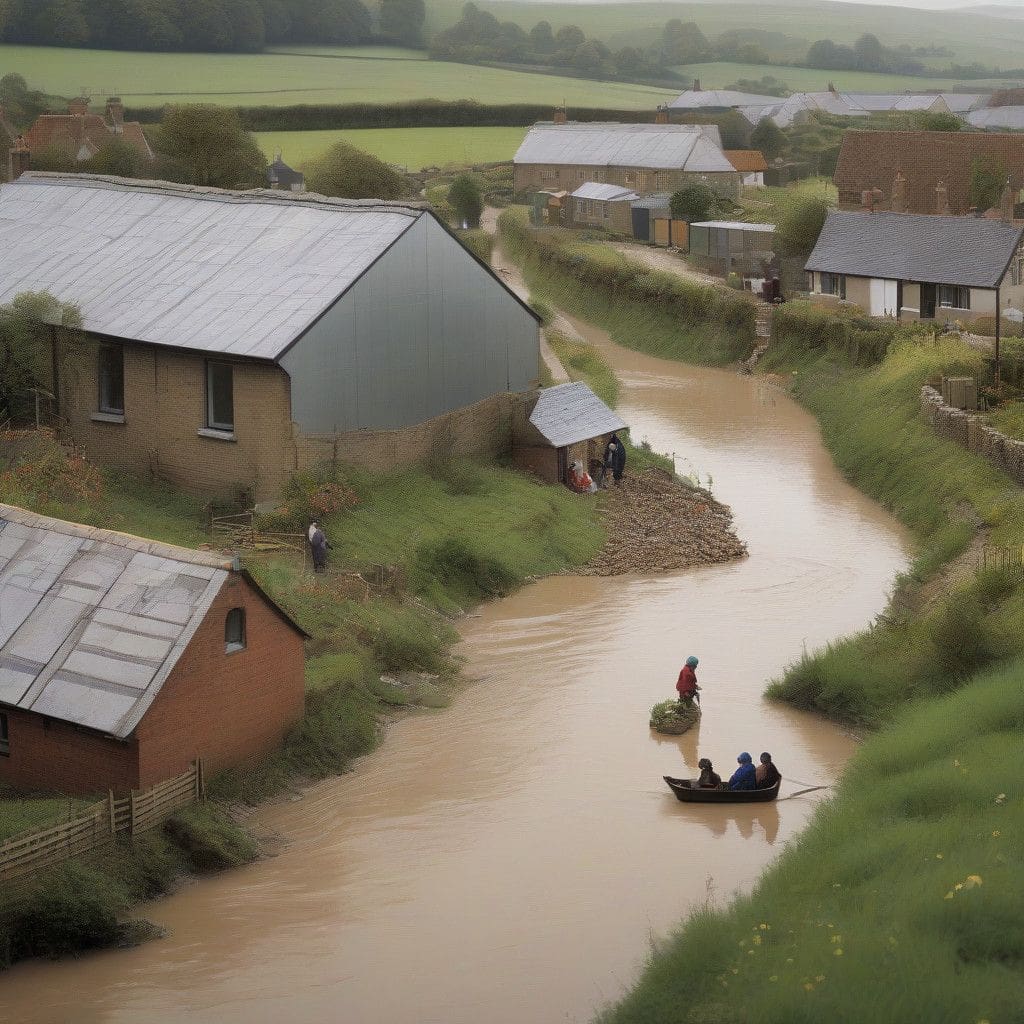Climate change is reshaping the landscapes of rural England, exposing communities and agricultural businesses to increasing risks of flooding and severe storms. The evidence of this threat is unmistakable, as last winter marked one of the wettest periods recorded since 1836. In response to these challenges, the Rural Flood Resilience Partnership (RFRP) has emerged, aiming to foster collaboration and enhance understanding of local vulnerabilities, while supporting rural communities in their effort to bolster resilience against flood risks.
A Unified Approach to Rural Flooding
The RFRP stands out as a coalition of six founding partners: Action with Communities in Rural England, the Association of Drainage Authorities, the Country Land and Business Association, the Environment Agency, the National Farmers Union, and Natural England. This partnership is designed not only to identify challenges but to create solutions that address the unique needs of rural areas. By pooling expertise and resources, these organizations are positioned to deliver more effective strategies tailored to the complexities of rural flooding.
The recently published work plan, covering the years 2024 to 2026, outlines a comprehensive strategy encompassing 21 specific actions aligned with seven strategic outcomes. Central to this initiative is the commitment to enhancing the evidence base that informs decision-making processes, providing quality support for rural communities, farmers, and landowners, and actively involving residents in flood resilience efforts.
The Economic Impact of Flooding
James Blake, Chair of Trustees at Action with Communities in Rural England, emphasizes the importance of community engagement in developing effective flood management strategies: “It’s vital that everyone living and working in rural communities has an opportunity to engage with and influence plans to manage the consequences of climate change.” This sentiment is echoed by Caroline Douglass, Executive Director for Flood and Coastal Risk Management at the Environment Agency, who points out the direct impacts of flooding on agriculture, noting the severe disruption caused by floodwaters leading to ruined crops and blocked roads.
Since 2015, significant projects have been initiated to protect over 400,000 hectares of agricultural land, adding resilience to both the economy and the environment. An impressive 280,000 hectares were better protected from 2015 to 2021, ultimately preventing over £500 million in potential economic damage. These figures illustrate that effective flood management not only safeguards physical assets but also sustains livelihoods in rural areas.
Enhancing Resilience Through Collaboration
The RFRP is positioned within a broader framework of flood and coastal risk management initiatives spearheaded by various authorities across England. It targets the vulnerabilities of rural communities by ensuring that a substantial proportion of flood risk management schemes prioritize these regions—approximately 40% of all schemes and 45% of investments focus specifically on protecting rural properties. This targeted approach is essential in addressing the unique challenges faced by less urbanized areas.
The partnership’s strategy involves various projects that will benefit from rigorous data collection and examination, fundamentally enhancing their understanding of the local context. By leveraging collaborative efforts and combining resources, the RFRP aims to develop innovative solutions that not only respond to current flooding risks but also anticipate future challenges.
Engaging Communities
One of the core philosophies underpinning the Rural Flood Resilience Partnership is the empowerment of local communities. The partnership recognizes that those who live and work in rural areas possess invaluable insights into the specific challenges they face. Through engaging these communities in discussions and planning, the partnership builds a foundation of trust and shared responsibility.
Inclusivity in planning and decision-making will not only lead to more effective strategies but also cultivate a sense of ownership among community members. This approach encourages proactive participation, where residents are informed and involved in implementing resilience measures tailored to their circumstances.
A Sustainable Future
As climate change continues to impose complex challenges, the Rural Flood Resilience Partnership is paving the way for a sustainable future in rural England. By uniting diverse stakeholders, encouraging community participation, and basing decisions on robust evidence, the partnership aims to create a resilient framework that protects both people and the environment.
The establishment of the RFRP marks an essential step in addressing one of the most pressing issues of our time. As communities, businesses, and agricultural sectors face increasing vulnerabilities due to climate change, initiatives like these form the backbone of resilience strategies that will support rural England for generations to come.
In conclusion, the emphasis on collaboration, local engagement, and strategic investment points toward a hopeful future where rural communities can withstand the challenges posed by climate change. As we move forward, it is crucial for all stakeholders to remain committed to these goals, ensuring that rural resilience becomes a collective achievement.












